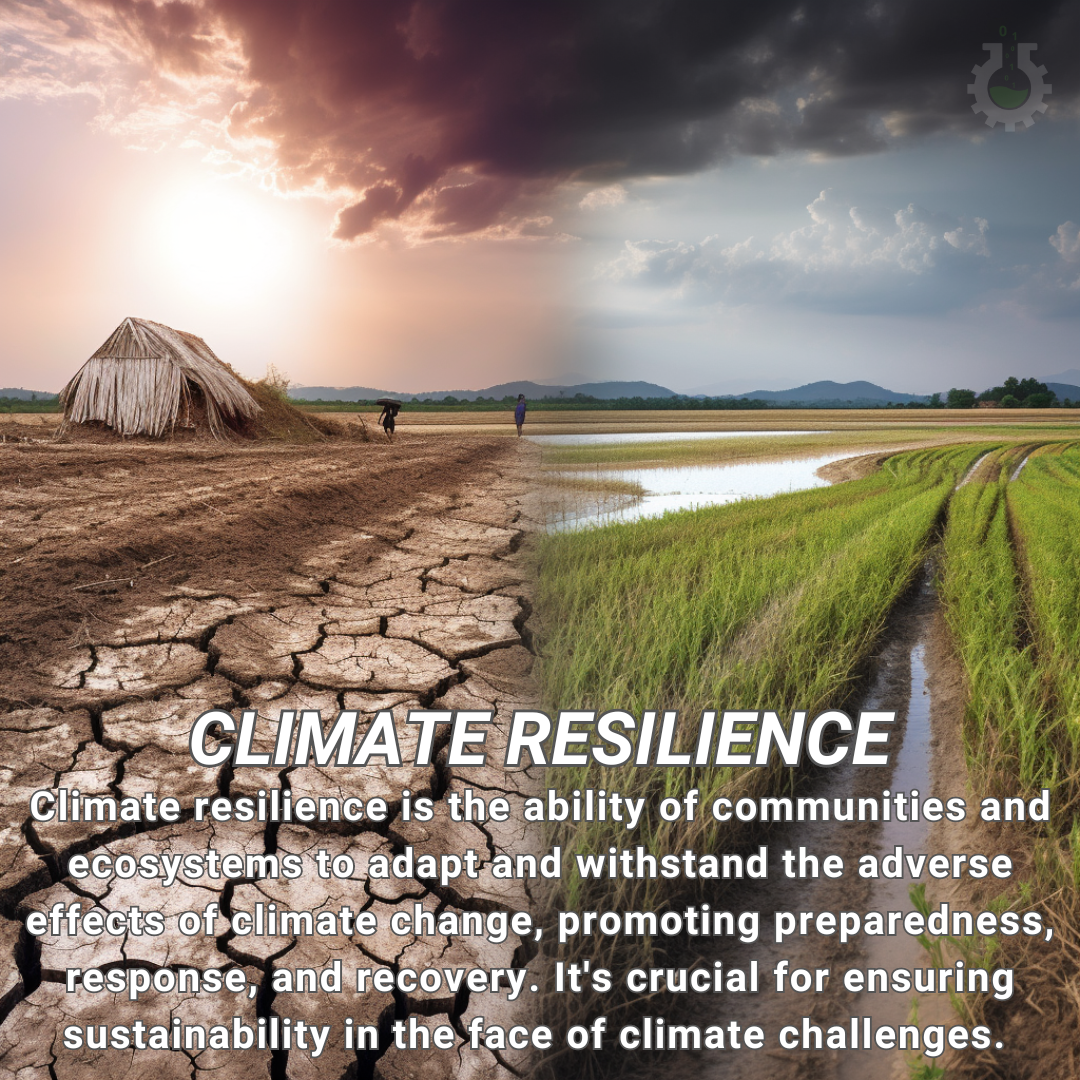January 9, 2024
Climate Change Poster Collection of the Day – Climate Resilience
Book a Demo
Today’s Climate Change Poster Collection focus on Climate resilience, a crucial concept in the struggle against climate change. It refers to the ability of systems and communities to handle and bounce back from disturbances related to climate change. The primary goal of enhancing climate resilience is to lower the susceptibility of communities, states, and nations to the impacts of climate change.
To build climate resilience, it is necessary to implement a range of social, economic, technological, and political strategies. These could involve anything from changing farming techniques to withstand unpredictable weather patterns, to reinforcing infrastructure to cope with increased flood risks, to creating policies that protect the most vulnerable from climate-related impacts.
It is important to understand that climate resilience is inherently connected with climate change adaptation, climate justice, and equity. These concepts are intertwined and central to the overall goal of building a society that can withstand and recover from the impacts of climate change.
Practical applications of climate resilience are varied, from developing climate-resilient infrastructure that can withstand extreme weather events, to modifying agricultural practices to endure changing weather patterns or increased instances of pests or diseases. These kinds of initiatives have the potential to make a real difference in the lives of people affected by climate change, particularly those in the most vulnerable communities.
Parallel to enhancing resilience is the crucial work of climate change mitigation, which focuses on reducing emissions of heat-trapping gases, transitioning to renewable energy sources, and using land to absorb carbon from the atmosphere. An essential goal of climate change mitigation is to cut emissions by at least 50% below 2005 levels by 2030. This ambitious target requires significant changes to our energy systems, infrastructure, and ways of life.
Underpinning both climate resilience and mitigation is the principle of climate justice. This ensures that strategies for dealing with climate change do not disproportionately impact certain communities, but rather prioritize the most vulnerable. In essence, climate justice involves prioritizing pollution reduction in low-income communities, expanding access to clean energy and public transit options for these households, and addressing systemic racism and historical injustices. This is an essential aspect of our response to climate change, ensuring that we not only reduce emissions and adapt to changes but do so in a way that is fair and just for everyone.
Climate resilience, climate change mitigation, and climate justice are interconnected concepts that together will guide our response to the challenges posed by climate change. By understanding and applying these principles, we can work towards a future that is not only sustainable but also equitable.
Discover an inspiring collection of climate change poster.



